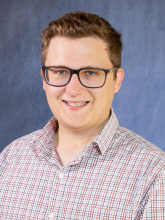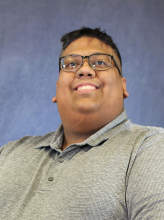On July 16, 2021, Pope Francis issued a motu proprio regarding the use of the “extraordinary form of the Roman Rite.” This gives to the bishop the exclusive competence to authorize its use according to the guidelines of the Apostolic See which are included in the motu proprio, some of which are quite significant.
The following documents and related news articles should be referenced as helpful resources in better understanding the motu proprio, Traditionis custodes:
The letter from the Holy Father to the Bishops on July 16, 2021
The Motu proprio of Pope Francis: Traditionis custodes
“New norms regarding use of 1962 Roman Missal: Bishops given greater responsibility” (Vatican News)
“Appealing to need for unity, pope restores limits on pre-Vatican II Mass” (Catholic News Service)
In July 2021, Bishop Walter A. Hurley, Apostolic Administrator of the Diocese of Gaylord, stated:
“The motu proprio will require some changes in the way we have functioned. Because of the significance of this matter, I want to ensure the originally-issued documents are readily available to all the Christian faithful — these documents offer clarity, as well as a sense of the motivation and background. It should be noted that the motu proprio is effective immediately.
“As we receive this important message from the Holy Father and his call to unity in our worship, I’ve asked our priests for their assistance in helping to faithfully and prayerfully implement this in the diocese and assist those who may be more directly affected by it. I am profoundly grateful for their ministry, particularly as we navigate significant matters such as this.”
In November 2021, Bishop Hurley provided further guidance:
"This motu proprio, called Traditionis Custodes, asks all to embrace the richness and fullness of the liturgical books promulgated by St. Paul VI and St. John Paul II in conformity with the decrees of the Vatican Council II. The texts of this apostolic letter, along with a letter sent to the bishops of the world, may be found [using the links provided above].
"Following the Vatican Council II and the revisions to our liturgical books, there continued to be some who remained strongly committed to using the traditional forms in place before the Vatican Council II. Over the years that followed, various popes gradually permitted the use of the traditional rites in place prior to the council, with Pope Benedict XVI expanding the right to use the older rites broadly.
"Pope Francis has found that based on a survey of the world’s bishops, the use of the Tridentine rituals has become a source of great division in the Church and directed that the use of the Tridentine rituals be limited. He has directed the bishops to restrict its growth and use and, at the same time, provide for the pastoral needs of those who have embraced the older forms of worship.
"Thankfully, I have not sensed a great division here in the diocese, except where efforts have been made to inject elements of the older forms of worship in the approved present celebrations that most would experience.
"Following the instructions of Pope Francis’ motu proprio, I have designated Holy Rosary in Cedar and St. Thomas in Elmira as the two locations in the diocese where one Mass each Sunday may be celebrated using the Tridentine form. (This Sunday Mass at Holy Rosary is at 11 a.m. and at St. Thomas at 3 p.m.) At Holy Rosary, there are several additional times during the week when Mass in the extraordinary form may be celebrated. Beyond these, other Masses in these parishes and all other parishes and institutions in the diocese must use the Novus Ordo, or ordinary form of the Mass, approved after the Vatican Council II.
"The Holy Father makes clear that new groups wishing to use the Tridentine form may not be established. He also challenges us to make sure that all the celebrations of the Eucharist be carried out in a reverent and respectful way carefully observing the appropriate ritual books."







